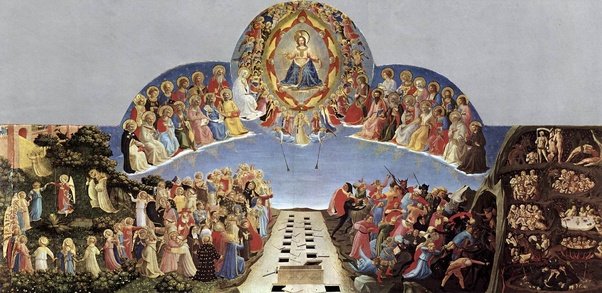Why is Catholicism true?

Catholic-ism, like any -ism, designates a collection of thought and practices that is internally consistent, and people who, to some significant extent, share in the wisdom of these thoughts and adopt the practices. Catholicism centers around several ideas: that Christ is our Lord and Savior, God and man as the same person, Whose miraculous Incarnation, oral teachings and miracles, torturous death and Resurrection are historical facts, Who will lead to life eternal those of us who believe in Him as Savior, do what he asked to do, — acts of kindness, — and avoid doing what He asked not to do, — offending God through sin; also that He gave us His Church and through the Church His sacraments through which we receive grace and live; also that we live in communion with the saints in heaven and Christian brothers on earth with whose companionship we go through our own justification and sanctification as we are all called to be saints; also that the Church is hierarchical, does not allow heresy, one in all geographies, has the divine head, Christ, and the visible human head the Pope, Christ’s vicar.
“Right” means correct in arguments: one who says “2+2=4” is right, one who says “2+2=5” is wrong.
From the brief outline of what Catholicism is, we see that Catholicism is right: when Catholicism teaches is a historical truth; with some research we find out that from the people who surrounded Christ on earth, through historians and doctors of the Church in antiquity, in Middle Ages, and in our times Catholics taught the same body of knowledge initially received from Christ.
The Orthodoxy, and the Oriental Christian Churches have disagreements over church administration and minor theological disagreements that do not dissent from the above core. We, Catholics, are ready to also unite with them formally and solemnly.
The Protestantism is a different system of thought, that dissents from the core substantially. Most egregious is their dispute over the origin: they think that what the Catholic Church produced in antiquity, the canonized Old Testament, less a few books the Protestants don’t like, and the New Testament whole, — is the only rule of Christian faith, which every Protestant pastor interprets how he wishes, perhaps in council from his contemporaries in his “denomination”, perhaps in full independence from history and opinions of others. Rejected are the forms of justification through good works and sacraments of the Church, the communion of saints, and most importantly, the historical continuity of the life of the Church, in which light only, the Holy Scripture can be understood. That is clearly an a-historical, illogical error, designed to build not One Holy Catholic and Apostolic Church but multiple edifices of error.
Finally, there are people who do not believe in the historical fact of the Incarnation and Resurrection, divinity of Christ or even existence of God. Their chief argument is that they have ancestral religion in which they are quite comfortable or that they need a miracle demonstrated in front of them before they believe that God exists; the illogic to expect God, the supernatural entity, enter the world of their superstitions, or to be discovered in a lab, or even be controlled by the unbeliever, is not noticed by them.
So, of course, Catholicism is right: it is logical, historical, and it was falsifiable at the origin. No one was able to falsify the claim that Christ lived, died, rose from the dead and taught the prelates of His Church for 40 days before He went to heaven, — and at least the Resurrection part was directly falsifiable by Jews and Romans. Why didn’t they produce the body? Why no witness recanted?
But that was the argument from fact and logic. There is also an argument from the mystical knowledge and direct experience.
The Church is not simply a philosophical society, nor historical society of like-minded intellectuals. It is the Mystical Body of Christ: like a body has various parts, limbs, and organs, so we Catholics all who lived righteous lives through history and who assemble at the Altar today are, mystically, parts of the Body Of Christ. “Mystical” here does not mean “imaginary”: Christ gives us to become parts of Him by physically eating the Eucharist, which is Him. Man is no longer an intelligent animal, he is a different creature whose life exists in Christ.
This is why the Church has been a veritable factory of saints throughout history: feats of self-denial, love of God and love of fellow man is our legacy. The 20th century, the unprecedented rule of cruelty instituted by militant Atheists and militant pagans, produced more saints and martyrs than the previous centuries combined.
Catholicism is indeed right, but more importantly: we partake of Divine nature and, by the time our natural life completes, we contemplate the Truth for Christ is the Truth. We are right because we know the Truth.